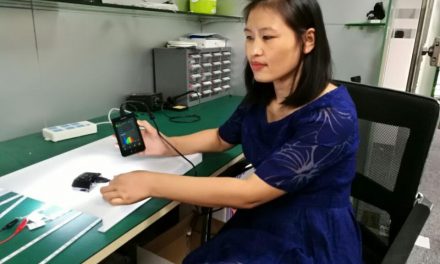Semiconductor Climate Consortium – Working Group Progress and Carbon Disclosure Project Update

As the semiconductor industry continues its drive toward net zero, the Semiconductor Climate Consortium’s work is critical to guiding us in our mission to reduce greenhouse gas emissions across the global semiconductor value chain.
That’s why at the first SCC general meeting of 2024 in late February, I was excited and honored to welcome the following leaders to the Governing Council:
- Missy Bindseil, Director of Sustainability and Communications, JSR
- Shawn Covell, Managing Director, Global Environmental, Social and Governance Strategy, Lam Research
- Katharina Westrich, Global Head of Vertical Management Semiconductor Digital Industries, Siemens AG
- Yuji Ogino, Vice President, Corporate Sustainability Management, Tokyo Electron Ltd. (TEL)
SCC invited Alaina Passavant, Account Manager at the Carbon Disclosure Project (CDP) to present on emission reporting trends. Following are key takeaways from Passavant’s talk.
Carbon Disclosure Project Opportunities
For procurement departments of companies across the semiconductor supply chain, reporting greenhouse emissions helps them to manage risks, improve operational efficiency, and reduce waste and cost. Passavant noted that reporting is a key enabler for companies to set environmental targets and track their progress towards those goals.

Reporting emissions data can also benchmark against peers and demonstrate environmental leadership – an important step for public companies as more investors key in on environmental, social and governance (ESG) as one measure of an organization’s performance.
CDP helps investors, purchasers and policymakers around the world use its data to make better, more informed decisions about their climate impact, and many SCC member companies are taking advantage of these benefits. BCG and the SCC Baselining, Ambition-setting and Roadmapping (BAR) working group relied on CDP data for analysis in last year’s report on the industry’s footprint.
Passavant highlighted the following best practices for using data to enable sustainable procurements to the more than 100 SCC members attending the general meeting, which also featured reports from all five SCC Working Groups on their plans for 2024:
- Publish disclosures are helping with supplier selection
- Publicly recognizing suppliers for their sustainability efforts
- Contractually requiring suppliers to report
- Analyzing supplier risk assessment data helps determine high-risk suppliers
- Scorecard completion based on the suppliers reporting profiles

Among CDP customers are more than 330 large organizations that request CDP to send their suppliers a questionnaire and return the insights to CDP, Passavant said. Of the 44,000 suppliers that have received the questionnaire, only about half provide climate-related data. Response rates to questions about related water usage and nature data is even lower.
Yet with the matrixed nature of semiconductor supply chains, the questionnaire is vital to effective reporting as a supplier to one organization is likely a supplier to at least several others. CDP reports that a company’s operational emissions are, on average, 11.4 times smaller than its total supply chain emissions – the very reason that taking the entire ecosystem into account is critical when tracking emissions.
Welcome to Newest SCC Members!

SCC Working Group Updates and Plans for 2024
The Baselining, Ambition-Setting & Roadmapping (BAR) WG is working to evaluate and refine the overall ambition for the SCC, as roughly defined at the organization’s outset last year. The WG is also studying the handprint, also known as the quantity of emissions avoided due to the products SCC members create. In addition, the team is working with Massachusetts Institute of Technology (MIT) and SCC member companies to better understand the environmental impact of information and communication technology and the digital industry.
Just as importantly, the WG is exploring carbon pricing – a cost applied to greenhouse gas emissions in order to encourage companies to cut coal, oil and gas usage – for the chip industry. Today, the industry lacks consensus on the value of the saved Co2 emissions. One risk is that the carbon price per ton of carbon saved will make projects to reduce emission less attractive.
Scope 1 Emissions WG has broken out into subgroups on process and abatement, and is also exploring in deep dives the BAR WG’s proposed ambitions, process emission metrology recommendations, and how to calculate the gap between stack and process emissions. The team has an aggressive timeline for projects in 2024.
Scope 2 Emissions WG is focusing on three initiatives:
- Improve the Scope 2 measurement, reporting and monitoring, and agree on a reporting standard.
- Work with key stakeholders to increase access and availability of low-carbon energy (LCE).
- Publish results of best practices sharing, solutions and strategies for SCC members, including the effectiveness of invitations to expert speakers.
Scope 3 Emissions WG released Category 1 emission guidelines for calculations in January and will be holding sessions with members to better understand the efficacy of the guidelines and make refinements. Meanwhile, the team aims to identify emissions hotspots across SCC member companies and identify priority projects to drive reductions. The WG is also preparing to hire an external consultant to work with members in order to define Category 11 emissions and exploring current member practices for data exchange to facilitate the development of value chain primary data exchange solutions across the industry.
The Emissions Reporting Protocols (ERP) WG is completing its ambition setting with the BAR while aligning with the other working groups. The team is using a third-party consultant to identify and create strategies for removing barriers to emissions reporting by the supply chain, an effort that could mean developing a guide to best practices and resources to address pain points.
SCC General Meetings are recorded for members who are not able to participate live or wish to review the information provided on the Connect@SEMI platform, under the general SCC section. If you are an SCC member and do not have access, please contact SCC@semi.org.
About the Author
 John Golightly is Vice President Sustainability, Climate, Global EH&S at ASM. With a career dedicated to advancing sustainability and safety, he has been a pivotal force at ASM since joining the company in 2012. Golightly presented the concept of a semiconductor industry climate pact to the SEMI Sustainability Advisory Council in 2021, leading to the formation of the Semiconductor Climate Consortium (SCC), where he currently serves as Chair. Emphasizing the power of collaboration, Golightly believes in bringing stakeholders together, setting goals, and finding common ground to accelerate climate progress in order to protect future generations.
John Golightly is Vice President Sustainability, Climate, Global EH&S at ASM. With a career dedicated to advancing sustainability and safety, he has been a pivotal force at ASM since joining the company in 2012. Golightly presented the concept of a semiconductor industry climate pact to the SEMI Sustainability Advisory Council in 2021, leading to the formation of the Semiconductor Climate Consortium (SCC), where he currently serves as Chair. Emphasizing the power of collaboration, Golightly believes in bringing stakeholders together, setting goals, and finding common ground to accelerate climate progress in order to protect future generations.













